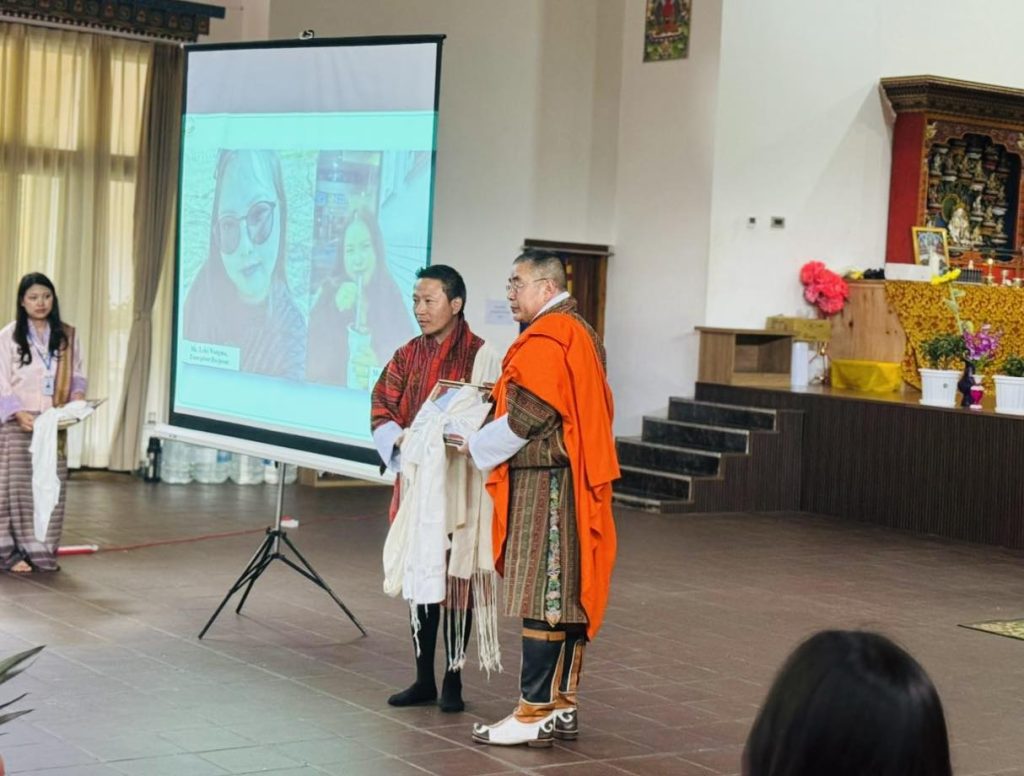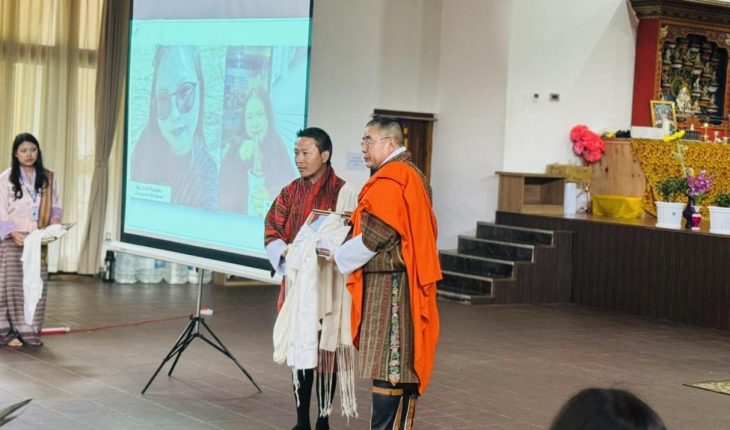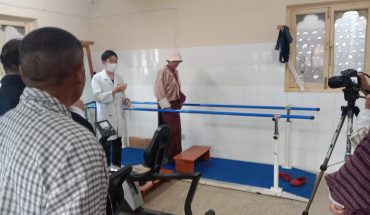
…also calls for greater awareness on kidney health
KINZANG DORJI TSHERING
Thimphu
Looking back on the Bhutan Kidney Foundation’s (BKF) 13-year journey, founder and executive director Tashi Namgay described its evolution as a story of persistence and growth.
“Thirteen years ago, we were focused just on establishing the organisation. It took five and a half years to register as a CSO,” he said.
Back then, he said, BKF couldn’t provide financial support to patients due to lack of funds and governance systems.
Today, the foundation has a proper governance structure, networks, and expanded services, including accommodation shelters in Bhutan and India for patients referred for transplants.
He emphasized that BKF now acts as a bridge between patients and services, reaching rural communities with education and awareness programs.
“The credibility of the organisation has grown tremendously. People know about BKF and support it,” he said. However, he also highlighted a grim reality: kidney failure cases are rising sharply.
“In 1998, there were only two patients on dialysis. Now, there are over 430 nationwide, and the number fluctuates because new cases emerge and some patients pass away,” he added.
The Bhutan Kidney Foundation marked its 13th Foundation Day last week with a celebration in Thimphu, honoring seven kidney donors and three long-time supporters for their life-saving contributions and dedication to the foundation’s early growth.
The event brought together patients, families, health professionals, civil society partners, and government representatives, reflecting both the progress achieved and the growing challenges in addressing kidney disease in Bhutan.
One of the most inspiring stories highlighted was that of 36-year-old Shyam Lal Limbu from Samtse. In 2011, he donated a kidney to a woman from Dagana whom he had never met.
“I saw on Kuensel that a woman was suffering because her kidney had failed. Instantly, empathy rose in my mind and I decided to donate so that she could live a normal life,” he recalled.
Over a decade later, he remains healthy and proud that the recipient is now living well and has children of her own. “As human beings, we should help each other if we are in a position to do so,” he said.
Similarly, 26-year-old Geeta Dungana from Gelephu donated a kidney to her sister just five months ago. “I could not bear to see my sister suffer anymore,” she said.
Her sister, Damber Kumari, expressed gratitude: “My life would have been in danger without a donor. Both of us make sure to attend hospital check-ups on time and follow doctors’ advice strictly.”
Other honorees included Tobgay, a taxi driver from Trongsa, whose brother donated a kidney after he spent two years on dialysis and lost his livelihood.
The event also recognized Kinley Tshering, Managing Editor of Kuensel; Riku Dhan Subba, Executive Director of Bhutan Media Foundation; and Amrit Bahadur Subba, Deputy Chief Counsellor with the Ministry of Education and Skills Development, for their crucial roles in helping BKF register as one of Bhutan’s earliest civil society organisations.
With dialysis services currently available in seven hospitals across Bhutan, the rising patient numbers place heavy pressure on the health system.
Health Minister Tandin Wangchuk, who attended the event, noted diabetes and hypertension as the leading causes of kidney failure and called for preventive measures, active lifestyles, and stronger collaboration between the ministry and BKF.
According to Tashi Namgay, kidney care involves both treatment and prevention, with the government playing the primary role.
“Prevention is key. We are working closely with the Ministry of Health and local governments to create awareness through innovative outreach, even in places we cannot physically reach. We also profile potential donors and educate families, but never pressure anyone,” he said.
He revealed that BKF has advocated for policy changes to ease the burden on patients, including the introduction of peritoneal dialysis—a home-based dialysis option—to reduce the strain on patients who otherwise have to spend hours at hospitals for hemodialysis.
“We identify social issues faced by patients and advocate with the government for solutions. The ministry has been very supportive,” he said.
While BKF conducts numerous awareness programs, Tashi stressed that awareness alone is not enough. “We have learned that we need evidence-based behavior change projects.
For example, in areas with high hypertension or obesity rates, BKF plan pilot projects with activities like cooking demonstrations showing how much salt to use, encouraging local produce over imported rice, and promoting physical activity.
He explained that BKF, along with other health-focused CSOs, will collaborate on such initiatives and submit recommendations to the Ministry of Health for scaling up.
“Prevention is the only sustainable solution. Supporting patients is essential, but unless we stop new cases, the burden on the health system will keep growing,” he said.
The Foundation Day’s introduction of the “Hero Award” for kidney donors was deliberate, Tashi explained, aimed at inspiring more people to come forward.
“We have seen cases where even close family members refuse to donate despite thorough education. By publicly recognizing donors, including unrelated ones who gave selflessly, we hope to promote compassion. Kidney disease is often silent until it’s too late; awareness is critical,” he said.
Nonetheless, BKF deliberately excluded anyone who sold kidneys, citing ethical concerns, but acknowledged the sensitive reality of such cases.
“Through these awards, we want to reduce unethical practices and foster empathy,” Tashi added. Looking ahead, BKF aims to strengthen its services, expand networks, and work toward financial sustainability.
“We started from scratch; now it’s like we’ve completed high school and need to pursue a degree and PhD,” Tashi added.
BKF plans to establish more shelters for patients in Bhutan and abroad, enhance awareness programs, and explore social enterprises whose proceeds will support the foundation’s activities.
“Without funds, charity is not sustainable. Any surplus we generate will go back to BKF for patients’ welfare. We are also working on a memorandum of understanding with the government to define roles and strengthen collaboration,” Tashi said.
He added that the foundation will continue to advocate for policies that reduce the economic burden of referrals abroad, which costs Bhutan millions annually.
The 13th Foundation Day ended with a call for greater community solidarity and lifestyle changes to reduce the prevalence of kidney disease.
As BKF Chairperson Laytshog Lopen Sangay Dorji reminded attendees that kidney disease is not only a medical issue but also intertwined with spiritual and social dimensions.
Thirteen years on, BKF stands as a testament to what civil society, government, and citizens can achieve together.
But as both the event and Tashi’s reflections made clear, the fight against kidney disease in Bhutan is far from over—it requires compassion, awareness, and collective responsibility.





